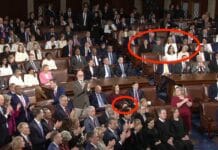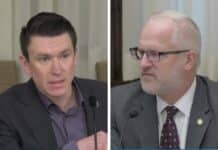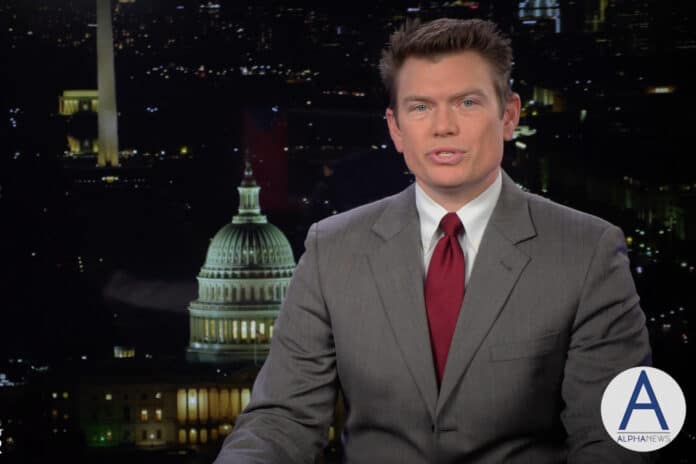Many in the governing trifecta have celebrated the 2023 session, and some like Gov. Tim Walz have even boasted about “burn[ing]” “political capital.” But the federal courts have issued preliminary injunctions against one unconstitutional law after another from last year’s session. As the legislature gears up for what will almost certainly be a controversial second half of the 2023-2024 biennium, it’s worth examining the trifecta’s spotty record in court.
Felon voting law
First, to be fair, the Legislature hasn’t been defeated in every case. In the Upper Midwest Law Center’s challenge to the new Felon Voting Law, which is based on the Minnesota Constitution’s statement that convicted felons cannot vote in Minnesota elections “unless restored to civil rights,” the Anoka County District Court upheld the law. But it only did so by avoiding the central question posed to it: what does “civil rights” mean? It also ignored the fact that when felons are convicted and a suspended sentence is imposed, under the new Felon Voting Law that convicted felon never loses the right to vote. How can something never lost be restored? The simple answer is that you cannot give back something that was never taken away. The Anoka County District Court’s decision is directly contrary to the Constitution. UMLC has appealed that decision, and we are asking the Minnesota Supreme Court to review it as soon as possible. Whether the Supreme Court takes the case now or it proceeds in the Court of Appeals, it is far from over.
Besides that one incorrect state district court decision, the trifecta has been on an epic losing streak.
Revocation of University of Northwestern and Crown College’s PSEO eligibility (Loe v. Walz)
One of the first cases to be brought against the trifecta’s unconstitutional agenda was the lawsuit by the University of Northwestern and Crown College, see Loe v. Walz, No. 23-CV-1527 (D. Minn.), after a new law disqualified them from participating in the Postsecondary Enrollment Options program, or PSEO, which allows Minnesota students to take college credits during high school. Northwestern and Crown were disqualified because they require a statement of faith from their on-campus students. Minn. Stat. § 124D.09, subd. 3 (2023). This means that Christian parents who want their kids to get college credits at Christian schools cannot do so, even though non-religious parents can send their kids to non-religious private schools to get those credits. And to be clear, we aren’t talking about theology or religion credits. We are talking math and science. The U.S. Supreme Court has struck down at least two laws just like the trifecta’s law in the past four years, in Espinoza v. Montana Department of Revenue, 140 S. Ct. 2246 (2020) related to Montana’s law, and Carson v. Makin, 142 S. Ct. 1987 (2022) related to Maine’s law. The Court said this in Espinoza: “A State need not subsidize private education. But once a State decides to do so, it cannot disqualify some private schools solely because they are religious.” 140 S. Ct. at 2261.
Perhaps recognizing this, Minnesota agreed not to enforce the law while the lawsuit is ongoing, and on June 14, 2023, the federal District Court entered an injunction against the law. Docket No. 20. But then the Minnesota Department of Education countersued against the universities, putting the thumb of the state’s law enforcement apparatus on these Christian universities, essentially seeking to force them to give up their statement-of-faith requirement. Docket No. 27, July 7, 2023. In the minds of the trifecta and Attorney General Ellison, apparently, there is no room for pluralism or religious liberty. But in the meantime, that’s one trifecta law already set aside for now.
The Legislature’s Citizens United end-around (Minnesota Chamber of Commerce v. Choi)
In another case, the Minnesota Chamber of Commerce sued the state campaign finance board and enforcing authorities (such as Ramsey County Attorney John Choi) because the Legislature passed, and Gov. Walz signed, a new campaign finance law that openly sought to do an end-around on the U.S. Supreme Court’s decision in Citizens United v. Federal Elections Commission. As we explained on a prior episode of Minnesota Law Weekly before a lawsuit was even brought, this law bans any company from making independent expenditures, like donations to PACs, where a single non-US person owns 1% or more of the company, or where two or more foreign investors in aggregate hold 5% or more of the company.
On Dec. 20, 2023, the federal district court in Minnesota issued a preliminary injunction against this law, too, because the Chamber is likely to prevail on the merits of the case. The Court rejected the concept that Minnesota has a compelling interest in prohibiting all political expenditures by a corporation just because they have a single foreign shareholder. And the Court held that the law doesn’t advance any claimed interest — there’s no proof that any foreign shareholder with a tiny interest has any sway with any corporation making expenditures. Even worse, the law bans corporate speech even where a merely passive investor owns 1% of a company — in other words, when there’s no problem whatsoever to remedy. And worst of all, the fact that the law exempted the biggest spenders in our state elections — labor unions and their PACs — makes it underinclusive. In other words, it only attempts to solve one part of the so-called problem with foreign ownership of PAC contributors. The legislature apparently believes that labor unions with foreign members are simply different — somehow — than companies owned in very small part by other foreign nationals. I wonder why.
Attempting to control out-of-state manufacturers (Association for Accessible Medicines v. Ellison)
Finally, the Association for Accessible Medicines, a national trade group which represents manufacturers and distributors of generic and biosimilar medicines, sued Attorney General Ellison because of a new law passed this past session which forbade drug manufacturers from imposing so-called excessive price increases on generic or off-patent prescription drugs, based on what the state health commissioner says is excessive.
On Dec. 4, 2023, the federal district court in Minnesota issued yet another preliminary injunction against this law because the law reaches way beyond Minnesota and seeks to penalize manufacturers who might raise generic drug prices even if manufactured outside Minnesota, say in Colorado, and then shipped to a distributor in New Jersey, just because the drug might eventually be sold in Minnesota. This violates the “dormant commerce clause” of the U.S. Constitution, which forbids a state from regulating drug pricing and sales occurring, in many cases, solely in other states.
There is more to come.
We at UMLC are looking forward to the federal district court in Minnesota hearing our “Don’t Say Felon” lawsuit on Feb. 21. That’s our lawsuit, alongside our friends at the Liberty Justice Center, against the Legislature’s gag order on talking about voter eligibility, for instance, saying things like “felons under sentence are not eligible to vote in Minnesota” because you believe the Minnesota Constitution requires restoration of their civil rights prior to voting. We believe that the First Amendment protects your right to speak to your friends and neighbors, or even write to your local paper, and take strong or controversial stands on issues like voter eligibility for felons in elections. The State and the Anoka County Attorney, Brad Johnson, believe they can shut down that speech and take you to court over it. We think free speech will prevail.
The Legislature also passed a series of laws that, on their face, prefer individuals for government-issued benefits based purely on their race or ethnicity. The U.S. Supreme Court strongly rejected those practices at public colleges and universities last summer in the cases against Harvard and the University of North Carolina. You can expect Minnesota laws that do the same thing in different contexts to start facing lawsuits and falling soon.
All in all, while the governing trifecta celebrated, as Gov. Walz put it, “burning” a bunch of “political capital,” several of those legislative actions have fallen in Court already, and the lawsuits have not stopped coming yet. If the Legislature and Gov. Walz continue to pass and sign unconstitutional laws, UMLC and others who believe in the rule of law will stand up for the people of Minnesota and continue to challenge those laws in court.









